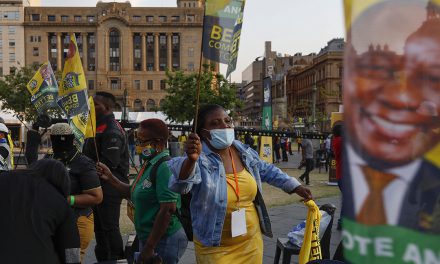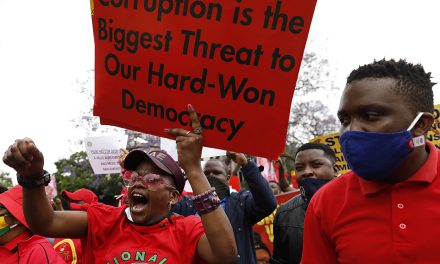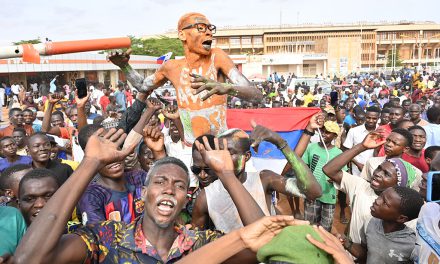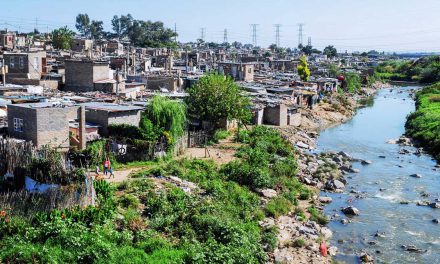More than 60 years after the apartheid government fired on thousands of protestors, the Sharpeville Massacre remains one of the most formative moments in modern South African history. Perhaps more than any other event, with the possible exception of the 1976 Soweto uprising, the Sharpeville Massacre also had a singular effect in opening the world’s eyes to the brutality of apartheid. As a result, the day not only commemorates our national struggle but also aligns with the international call to combat racial discrimination, as recognised by the United Nations.
The persistent importance of Sharpeville in our national consciousness was reflected in President Ramaphosa’s decision to deliver his March 21 Human Rights Day address in the area for the first time since 2019, partially as a commemoration of 30 years of democracy.
Good Governance Africa (GGA) went to Emfuleni, the municipality in which Sharpeville is located, the day before the March 21 events. We hope to make the area a core focus of our work in South Africa for the next few years.
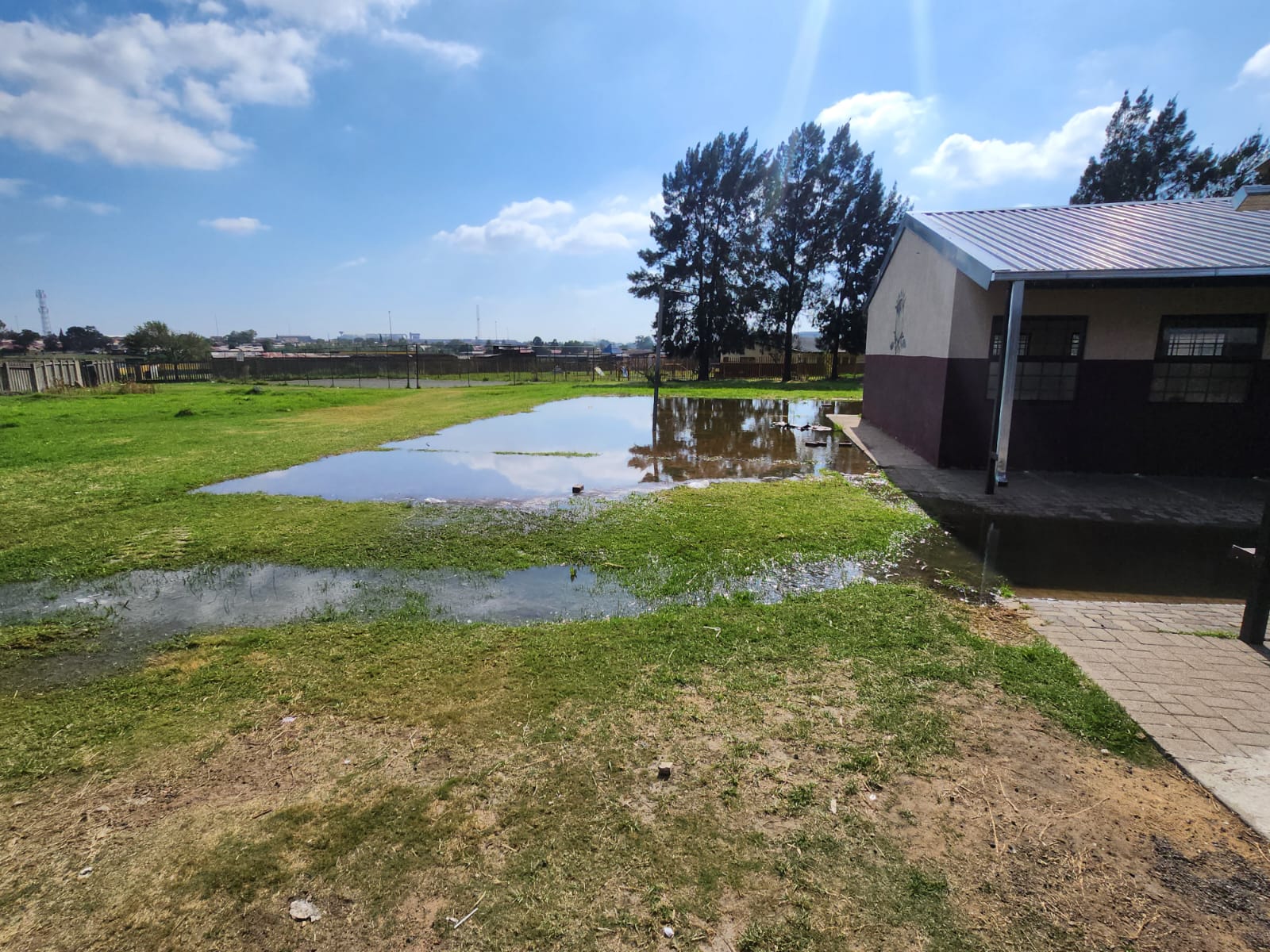
Phuthulla primary school, Boipatong. Sewage spills into the yard next to the classrooms. Pic courtesy Phuthulla primary school
Specifically, we seek to build relationships with core stakeholders as a way of supporting the municipality in enhancing the quality of governance in the area, while also helping citizens to play a more active role in the governance process by holding relevant government officials accountable.
The factors motivating our selection of Emfuleni are manifold, but two are worth focusing on. First, the area is notable for the prevalence of a clear governance deficit. According to GGA’s recent Governance Performance Index, Emfuleni is the local municipality in Gauteng where municipal functionality is weakest. The municipality performs least favourably on dimensions of governance measuring administration and leadership, which are informed by the findings of the auditor general.
Second, at a time when democratic dissatisfaction is on the rise, Emfuleni stands out for having a voter registration and voter turnout rate that is lower than the provincial norms.
GGA’s visit was facilitated by the Emfuleni Local Youth Development Forum, a long-standing group focused on providing youth with opportunities and skills development.
One of the first places the forum took us to was Phuthulla Primary School in Boipatong. As it was the last day of term, the schoolchildren were let out early, and the air was filled with excited shouts and screams.
The enthusiasm of the schoolchildren belied a school facing significant problems, the most prominent being sewage, with effluent from neighbouring houses being discharged within the school’s boundaries. The problem has existed for several years, and it was compounded by the presence of a sizeable landfill site just outside the school’s boundaries.
According to various interlocutors, whereas Phuthulla Primary School had once been responsible for close to 1,000 students, this has dwindled to just over 500 today. Many parents had removed their children from the school over concerns about them developing health problems.
Staff members and residents said the provincial Department of Education was starting to work with the municipality and the school to try to resolve the issue.
We visited several other places including another larger landfill, as well as the sites of both the Boipatong and Sharpeville massacres. Near the latter, preparations were well underway for the March 21 ceremonies, but many resident onlookers were sceptical about the value of the event.
They raised concerns about a lack of jobs, inadequate service delivery, and several political parties exploiting the memorial, only to forget about the area after an election. Perhaps most worrying from an outsider’s perspective was the commonly heard sentiment of many residents, especially the youth, questioning whether much had changed since the advent of democracy in 1994 and the signing of the Constitution in Sharpeville in 1996.
It is worthwhile reflecting on this sentiment, and considering the implications for South African governance and democracy.
In his State of the Nation address in February, Ramaphosa alluded to the changes that have occurred in South Africa since 1994 through his recounting of the life story of a young woman named Tintswalo, or “democracy’s child”.
Whatever the merits or demerits of the president’s decision to convey this message through the story of a fictitious person, it was essential that he used his platform as head of state to recount how South Africa has made substantive progress over 30 years of democracy.
Ramaphosa returned to the theme again in his address on 21 March, saying: “As we celebrate 30 years of freedom, we will reflect on the progress we have made in progressively realising the social and economic rights contained in our Constitution.”
In several critical respects, the nation is in a far better place than it was when apartheid ended, most notably in terms of the rights and opportunities available to the majority of the population, as well as through the increased accessibility households in historically deprived areas have to critical services like housing, water and electricity.
But what is also true is that if the capacity of multiple spheres of government to grapple with societal problems cannot keep pace with the legal expansion of opportunities for millions, as seems to be the case in places like Emfuleni, then expectation gaps can form, especially for those who had no direct experience of apartheid.
If problems such as those visible at Phuthulla Primary School are not effectively addressed with sufficient haste, then apathy and disillusionment can consolidate into something far more menacing. We are already seeing signs of that in our politics through disinformation, xenophobia and the undermining of stalwart institutions of our democracy such as the Electoral Commission of South Africa.
Ensuring that a cohesive South African democracy endures for 30 more years, requires a coalition of like-minded actors to protect the gains that have been made, while also effectively resolving urgent governance concerns.
The sooner this happens, the better the prospects that the youth of Emfuleni will not only have greater life opportunities than previous generations but also that they will be as committed to the ideal of a democratic South Africa as their forebears once were.
This article appeared in Mail & Guardian on 27 March 2024.
Pranish Desai is a doctoral student in political science at the Massachusetts Institute of Technology. His core areas of focus are in comparative politics and political methodology, with a specific interest in the politics of Southern Africa. Between 2021 and 2024, Pranish held several key positions within the Governance Insights and Analytics programme at GGA. In these roles, he was centrally responsible for the elevation and enhancement of the Governance Performance Index as GGA's flagship governance assessment tool. Before departing GGA, Pranish also played a key role in the development of our strategic framework for the 2024-2028 period.


